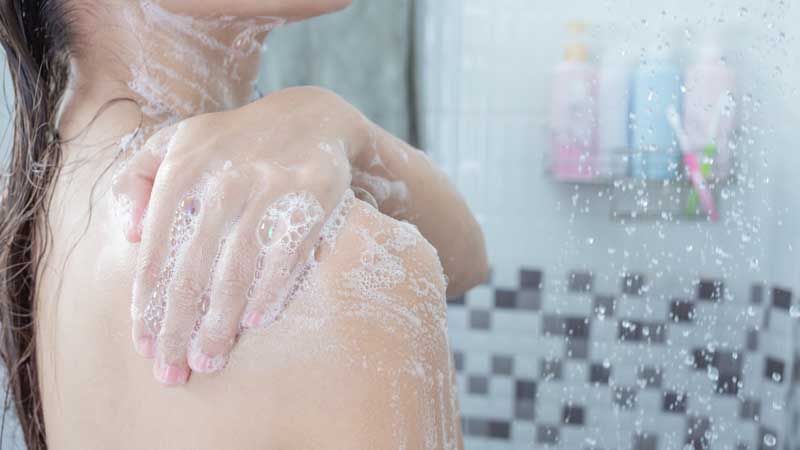Does Laser Treatment Cause Acne?
- 11 months ago
Laser hair removal has become a go-to option for many people looking to eliminate unwanted hair for good. It promises smooth, hair-free skin without the regular hassle of shaving or waxing. However, some individuals experience an unwelcome surprise after their treatments: acne or pimples.
After spending time and money on beauty treatment, the last thing anyone wants is to face new skin issues. It’s important to know that while laser hair removal can sometimes lead to breakouts, it doesn’t mean the treatment is bad for your skin. Instead, understanding the reasons behind these breakouts can help you navigate this common concern.
By learning about how your skin might react and the importance of following post-treatment care, you can feel more confident and informed about your laser hair removal journey.
Laser Hair Removal: Does It Even Work For Real?
Can Laser Hair Removal Cause Acne or Pimples?
While laser hair removal is not a direct cause of acne, it can contribute to conditions that promote acne formation. The heat from the laser can create an environment conducive to breakouts, particularly if the skin is irritated or if the hair follicles become clogged. However, for most patients, these breakouts are typically temporary and subside as the skin heals.
Also Check: The Right Diet Plan to Get Rid of Acne

Why Do Patients Get Pimples After a Laser Hair Removal Procedure?
Acne or pimples appearing after laser hair removal can be attributed to several factors, including skin irritation, follicle reaction, and individual skin types. Here’s a closer look at these contributing factors:
- Skin Irritation: The laser targets hair follicles by emitting concentrated light energy. This process can cause temporary inflammation or irritation to the skin. The heat from the laser can lead to redness, swelling, and sensitivity, which may result in the formation of small bumps or pimples.
- Follicular Reaction: After laser hair removal, the hair follicles undergo a process called thermal damage. While this process aims to disable hair growth, it can also trigger a response in the skin that may lead to acne-like breakouts. The hair follicles might become clogged with debris and sebum, promoting acne formation.
- Skin Type and Sensitivity: Individuals with oily or sensitive skin may be more prone to breakouts after laser treatment. Skin that is naturally more reactive can exhibit acne after the procedure due to increased sensitivity or hormonal fluctuations.
- Post-Treatment Care: Failing to follow proper post-treatment care guidelines can also lead to breakouts. For instance, using heavy skincare products or failing to keep the area clean can exacerbate irritation and increase the likelihood of pimples forming.
- Inflammatory Response: The skin’s natural inflammatory response to heat and light energy can lead to temporary breakouts as the body works to heal the treated area.
- Clogged Hair Follicles: As mentioned earlier, hair follicles may become clogged with dead skin cells, oils, and debris after treatment. This can create a perfect breeding ground for bacteria, resulting in pimples.
- Bacterial Growth: The treatment area may become slightly compromised, allowing bacteria to flourish, which can lead to infection or acne-like breakouts.
- Hormonal Fluctuations: Some patients may experience hormonal changes following treatment that can trigger acne, particularly if they have a history of hormonal acne.
How Does Laser Hair Removal Affect Hair Follicles?
Laser hair removal functions by focusing concentrated light energy on the melanin (pigment) present in the hair follicles. The heat generated destroys the follicle, inhibiting future hair growth. Here’s how this affects the skin:
- Destruction of Hair Follicles: The laser's energy damages the hair follicles, preventing hair from growing back. This is the primary mechanism behind the effectiveness of the treatment.
- Temporary Damage to Surrounding Skin: While the laser specifically targets hair follicles, the surrounding skin can also experience temporary damage or irritation, leading to redness and sensitivity.
- Healing Process: The skin undergoes a healing process after treatment, which can include inflammation and potential breakouts as the body repairs itself.
Also Check: Worried About Hair In-Growths?
How Frequently Do Pimples Occur Following Laser Hair Removal?
The frequency and severity of pimples after laser hair removal can vary widely among individuals. Some patients may experience no breakouts at all, while others may notice mild to moderate acne. Typically, breakouts may occur within a few days to a week following treatment and can last for a short duration. Factors influencing this include:
- Skin Type: Individuals with oily or acne-prone skin may be more susceptible to post-treatment breakouts.
- Treatment Area: Areas with thicker skin or more hair follicles may experience different responses compared to more sensitive areas.
- Pre-Existing Conditions: Patients with a history of acne or skin conditions may be more likely to experience post-treatment breakouts.
Managing and Preventing Post-Treatment Breakouts
To minimize the risk of acne after laser hair removal, patients can adopt several strategies:
- Follow Aftercare Instructions: Adhere to the post-treatment care guidelines provided by your practitioner, including avoiding heavy makeup and using gentle skincare products.
- Keep the Area Clean: Regularly cleanse the treated area with a gentle cleanser to remove excess oils and debris.
- Avoid Heat and Sun Exposure: Protect the treated area from excessive heat, sun exposure, and harsh skincare products that can irritate the skin.
- Use Non-Comedogenic Products: Opt for skincare and makeup products labeled as non-comedogenic, which are less likely to clog pores.
- Consult Your Practitioner: If breakouts persist or worsen, consult with your laser technician or dermatologist for advice and possible treatments.
Conclusion
While acne and pimples can appear after laser hair removal, understanding the causes can help patients manage their expectations and care for their skin effectively. The key is to follow proper aftercare protocols and be mindful of individual skin types and sensitivities. Most breakouts are temporary and resolve as the skin heals, allowing patients to enjoy the long-lasting benefits of smoother, hair-free skin. If concerns about acne persist, seeking guidance from a qualified skincare professional can help ensure a positive outcome from the treatment.










